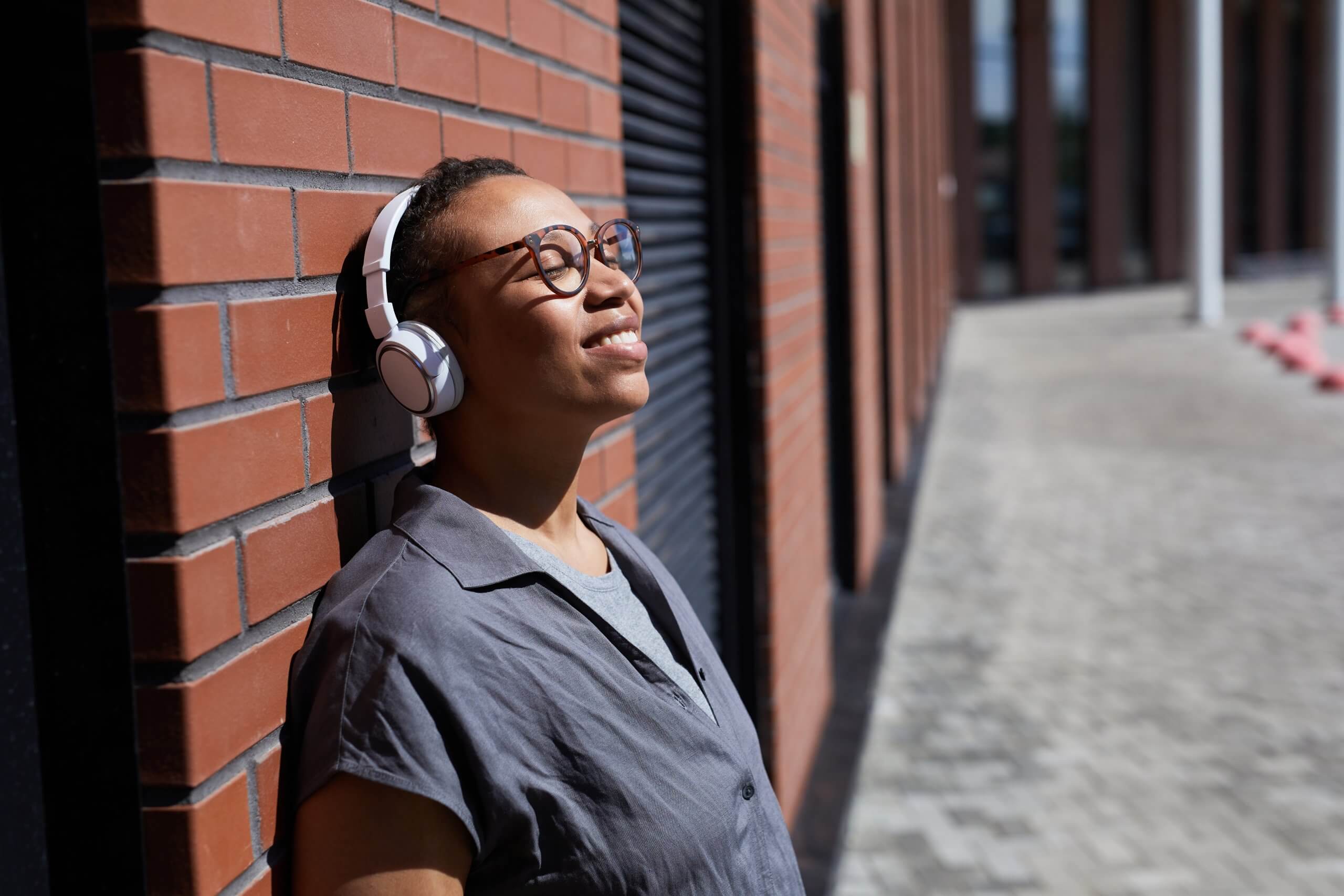LEARN is committed to fostering a culture that embraces what makes us each unique—be it race, ethnicity, gender/gender identity, sexual orientation, religion, national origin, disabilities/abilities, or socioeconomic background. LEARN aims to acknowledge the lived experiences and diversity of perspectives of our staff and welcomes our teammates to share their story to help foster conversations about diversity, equity and inclusion in our communities.
By: Asia Johnson, BCaBA, Autism Spectrum Therapies
Asia Johnson (she, her, hers) is an Assistant Behavior Analyst in AST’s greater New Orleans, Louisiana region and the co-chair of LEARN Behavioral’s DEI Employee Resource Group.
Walking on her tiptoes was interesting but cute. Rocking back and forwards raised my eyebrows. But the repetitive “I’m going to stop, I’m going to stop,” felt like weights pulling on my heart.
I had never heard the word autistic before. Little did I know that in a matter of months, the diagnosis of autism spectrum disorder (ASD) would be commonplace. I would sit in my living room with tears in my eyes and my phone in hand watching my daughter attempt to self-regulate. I felt helpless. For days this cycle would continue, leaving me uncertain if I was a good mother. I revisited each trimester of my pregnancy, actively attempting to re-evaluate anything I may have done wrong.
A mom of two with limited resources but a Medicaid card ready to go, I assumed it would be a walk in the park to get my daughter evaluated. I naively thought they would immediately tell me what was causing the concerns and provide tools to assist her. I imagined myself falling backwards into a hammock free from the weight of the world only to fall through the very net I assumed would hold me up. I was told there would be a nine-month wait before I’d receive a call about the evaluation. I was devasted. Even more, devasted to learn that if I had private insurance, I could have achieved a diagnosis in a few weeks.
As a Black woman who experienced medical malpractice during my pregnancies, I was on edge. I wasn’t sure I could trust clinicians to have my best interest at heart, let alone my child’s. With the pending evaluation, I wanted help but preferred help from someone who looked more like me. I kept wondering how a white female could relate to my child or me. Culturally we are different, from the way we comb our hair to how we greet another person.
When diagnosis day finally arrived, I was elated to put a name to all the restless nights. My daughter was diagnosed with autism spectrum disorder. I left that day with reassurance that I was indeed on the right track. But as I toured different facilities, I did not see anyone that looked like us. This feeling left me disappointed. No one in my family had walked this path, so I had no help with guidance or insight, but I was determined to obtain some help. As a parent, we are tasked with some minor and some major decisions to make on our children’s behalf; making the natural choice to seek applied behavior analysis (ABA) services was a significant decision in my eyes.
While I was grateful and relieved to finally have a diagnosis, I soon had a new concern. I quickly learned that the field of ABA lacked diversity within leadership roles. The most recent demographic data report by the Behavior Analyst Certification Board (BACB), reports 70.05% of certificants are white, with the remaining identifying as Latinx (10.56%), Asian (6.85%), Black (3.93%), Pacific Islander (0.38%), and American Indiana (0.28%).
My daughter’s primary struggle was with receptive communication. She could speak but would often talk at people. Her conversations would lead to questions she overheard on television: “Did you know your heart is located in your diaphragm?” However, my child was rarely truly interested in the actual response; if she was, she didn’t wait long to receive the answer before jumping in with another medically driven question. It seemed as if her focus was on the oohs and ahhs or the “wow, how smart” conversations that would follow.
ABA was described to me as a treatment option using empirical studies to promote behavior changes among people living with autism spectrum disorder (ASD). ABA included various treatment settings, and my daughter was provided two options. Option one was to have a behavior technician come into our home. The clinician explained how they would use ABA practices to decrease her comorbid diagnosis of sibling rivalry. Option two was an after-school social skills group to target her ability to reciprocate verbal responses when communicating with others. However, both did not resonate with my lifestyle nor my views as a Black parent, especially with the syntactic structures and linguistics I noted in our brief conversation. I often wondered if my family’s values would be accepted or would I have to have a practitioner come into my home and encourage their societal norms, and that was not something I was willing to accept. As a single mom, I also pondered how I would be able to bring my daughter to a social skills group while working a full-time entry-level job.
I wasn’t wrong to worry. Research shows that Black Indigenous Persons of Color (BIPOC) families and those of low socioeconomic status may encounter issues with inappropriate treatment delivery because of different cultural perspectives. I knew BIPOC families receiving treatment from white practitioners could often face implicit biases because of the country’s systematic racism, which frightened me. Unfortunately, the data says white clinicians are likely to make assumptions regarding treatment based on stereotypes and their own lived experiences, leading to inaccurate recommendations. So, I did not move forward with ABA services. I did not feel any facility I visited had clinicians who knew how to properly teach my brown-skinned child how to speak the English language, consistent with my families’ syntactic structures.
This pivotal moment in my life shifted my perspectives and my professional journey. I decided that I could (and would) become the Black clinician I once sought. My journey has been harrowing, and often times I still feel like I remain the elephant in the room. But today, there is a peek of light at the end of the tunnel.
When parents embark on a journey designed to make socially significant changes in their child’s life, resistance is likely to happen when approached by a white clinician – especially in southern regions. The south has been known for racial divides and limited resources for Black communities. Southern states have long represented large Black populations and are often referred to as the Black Belt. Nonetheless, Black patients continue to fight a battle for health equity and justice. ABA services are no different; the Journal of Autism & Developmental Disorders found that African-American children with autism were diagnosed an average of 1.4 years later than white children and spent eight more months in mental health treatment before being diagnosed.
BIPOC patients deserve support in their fight for equal services. BIPOC patients deserve consideration when forming effective treatment plans. After a long road to a proper diagnosis, families should not face additional challenges in teaching their children the tools necessary for productive and responsible citizenship consistent with their cultures.
My goal as a clinician has always been to inform the world of societal differences that may impact treatment modalities. One example is the lack of acknowledgment often witnessed when practitioners teach verbal and behavioral skills. Often, Black individuals are forced to code-switch. When practitioners not familiar with the cultural nuances in language, work in some homes, they may dictate using what they are familiar with. Code-switching is exhausting, yet many Black individuals are forced to use the “standard language” society deems acceptable in a field focused on effective treatment. As a Black woman, I’m aware of this struggle (and have had to do it in my own life and work). I’m even more aware and conscious that it may be more challenging for those who are autistic to change their behavior readily, let alone the spoken language they are accustomed to hearing.
My experience as a Black Medicaid recipient who crossed various obstacles with my daughter’s diagnosis and treatment process encouraged me to seek out a company devoted to expanding diversity when I finally received my certifications. I am now a Black clinician striving for continued growth with ABA services in the south. I am hopeful for change as I continue to acknowledge cultural differences within my treatment plans.
LEARN pledges to create a community centered around trust, respect, tolerance, and empathy. Together, we’re better.













